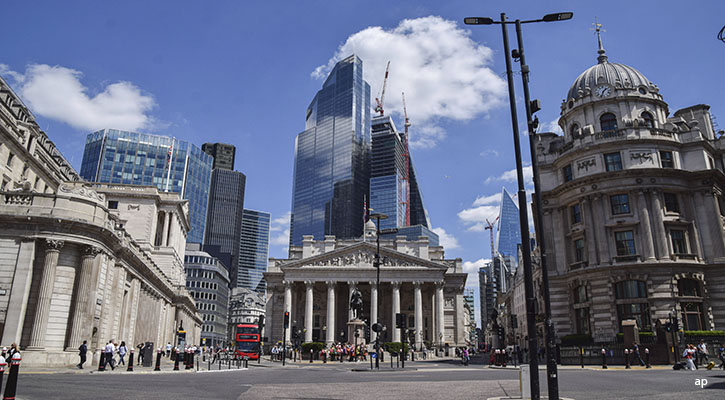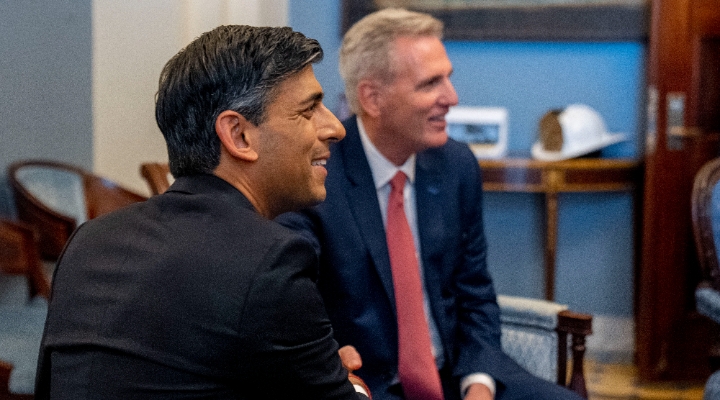
The UK unemployment rate ticked downward in the three months to April, while pay growth picked up, figures from the Office for National Statistics showed on Tuesday.
Unemployment edged down to 3.8% in the three months to April from 3.9% in the three months to March. Market consensus, as cited by FXStreet, had expected unemployment to rise to 4.0%.
In March to May, vacancies are estimated to have fallen by 79,000 on the quarter to 1.1 million.
"Vacancies fell on the quarter for the 11th consecutive period and reflect uncertainty across industries, as survey respondents continue to cite economic pressures as a factor in holding back on recruitment," the ONS said.
In the three months to April, annual growth in average total pay, including bonuses, picked up to 6.5% from 6.1% in the three months to March. This came above market consensus, which expected pay growth to hold steady.
Excluding bonuses, annual average earnings growth was 7.2% in the three months to April, compared to 6.8% in the previous three months. This was above expectations of 6.9% growth.
Inflation First, Then Productivity
Meanwhile, UK chancellor Jeremy Hunt has suggested that taxes could start falling if productivity is boosted in the public sector,
Hunt acknowledged that tackling high inflation must be the "immediate priority" to pave the way for increased growth.
Speaking at the Centre for Policy Studies' Margaret Thatcher conference on Monday, he said this should be only the "starting point" of the UK's economic mission.
Hunt said that to keep up with projected spending pressures would mean increasing annual tax revenues by £200 billion by 2071, or doubling income tax and main rate of employee national insurance.
However, if productivity growth in the public sector increased by 0.5% a year, the "gap" between anticipated growth and anticipated spending up to 2050 would be closed, he said.
Hunt told the conference: "All advanced economies face slower growth. We need to find a smarter way out of the challenge.
"Tackling inflation must be the immediate priority – but that's the starting point, not the end point. We need growth driven by increases in productivity.
"If we replicate the productivity growth we've seen in the private sector and apply it to the public sector, we start to increase GDP. It would mean increasing tax revenues, without increasing tax rates – and it will put us on a sustainable path to lower taxes."
Ministers have faced pressure from backbenchers pushing for tax breaks, with former prime minister Boris Johnson using his parting shot at Rishi Sunak to call for cuts to both business and personal levies.
But Hunt has so far dashed hopes of immediate breaks by warning the "number one task" is to lower inflation.




























